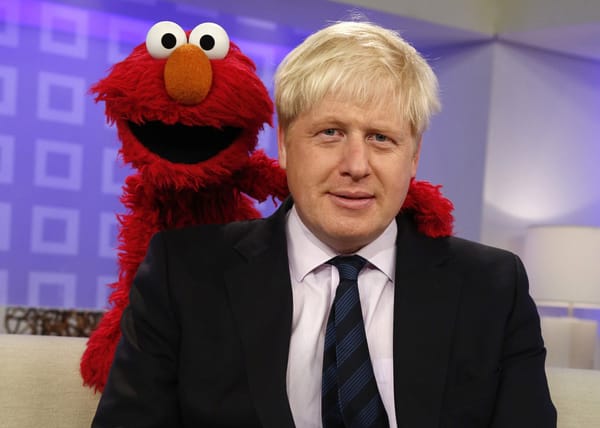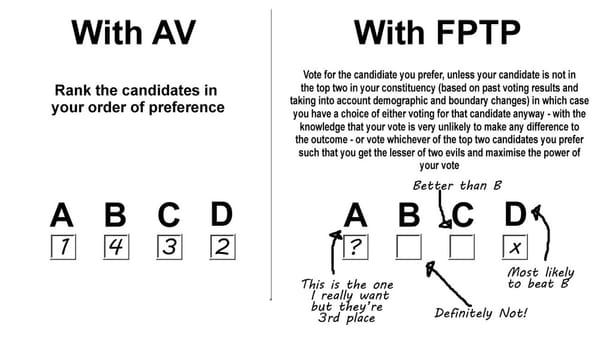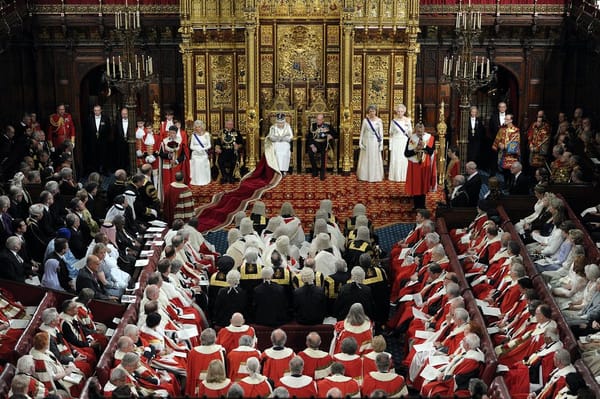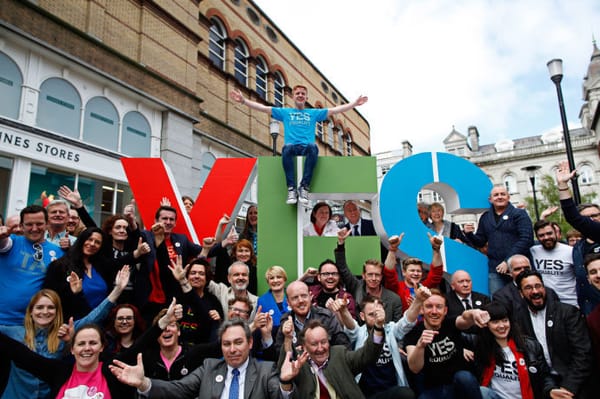An Interview with Mayor of London candidate George Galloway
Joshua Renken interviews the RESPECT Party candidate for Mayor of London, George Galloway, on his mayoral bid and current affairs
Born in Dundee, Galloway became involved in politics from a very young age and is now campaigning as RESPECT Party candidate for Mayor of London. Known as a political maverick and divisive figure in British politics, Galloway has been lauded for his lively rhetoric and impassioned debating style.
George Galloway has served as an MP almost continuously from 1987 to 2015, representing four different constituencies. A vocal opponent of the Iraq War when he was a Labour MP, Galloway became the Vice-President of the Stop the War Coalition in 2001, before being ousted from the Labour Party. Galloway joined the RESPECT Party, which was founded in 2004 out of the Stop the War coalition, and was elected in 2005 to represent Bethnal Green and Bow as RESPECT’s first and so far only MP. He soon became the party’s leader. After losing his seat in the 2010 election he stood in the Bradford West by-election in 2012, winning with more than 55% of the vote. Galloway lost his seat to Labour in the 2015 general election, and has since announced his bid as RESPECT Party candidate for the Mayor of London.
Galloway supports the Palestinian side of the Israeli-Palestinian conflict and is currently in the middle of producing a crowdfunded film titled ‘The Killing$ of Tony Blair’ about the former prime minister’s involvement of the Iraq War.
I got in touch with George Galloway to discuss his mayoral bid and current affairs.
Joshua Renken: How is the campaign going?
George Galloway: Very well indeed of course I’ve currently got the field to myself at the moment, because the Conservatives and Labour haven’t chosen a candidate yet, so they’re kind of running against each other, especially on the Labour side. So I’ve been making hay while the sun shines, holding really vibrant public meetings and rallies and doing a lot of talking to communities and thinking about the programme that we’re putting forward in 2016. We have come up with some original ideas.
JR: Who is funding your mayoral bid?
GG: No one at the moment. We have a crowd funding scheme but of course we don’t get that money until almost polling day. We haven’t spent much. That which we have spent we’ve tried to recoup from collection boxes. So any shortfall I’ve paid for myself.
JR: Why do you want to be Mayor of London, and didn’t you actually want to stay on as MP for Bradford West?
GG: Well I have fancied running for Mayor of London frankly ever since the post was created. Ken Livingston had my full support, especially the first time, a little less so the second time, and I was very sorry that he failed to defeat Boris Johnson.
I think it’s a very important and powerful position. It’s a chance to express your ideas and programme to eight million people, the closest thing you’ll get to a direct national election, with London’s population being larger than many nations. And a chance, if you win, to really achieve practical things. To make the lives of millions of people better, so I’ve been looking at the position for a long time and when it became available I decided to go for it.
JR: What are your priorities and major policies that you would enact if elected as Mayor London?
GG: I’ll give you the latest one which is attracting a lot of attention, and that’s the Mayor Chain that I have proposed. I’m going to put the entire £17 billion budget online in real time in block chain and this will allow the public in to see exactly what’s coming in and exactly what’s going out, and where it’s going to, and make representation about it.
So for example if the mayoralty transferred today 50,000 pounds for such and such a service, members of the public instantaneously can say ‘I know that that same service could be provided much more cheaply’ and we’ve identified that we can make very substantial savings in the budget, perhaps 900 million pounds saving, just by public participation. So we’d be the only government in the entire world whose entire budget was transparently online and influenceable and I think it might just set a trend. So that’s the latest proposal that we sent out on Wednesday.
If you go to YouTube you’ll see my launch speech and if you go to https://www.startjoin.com/galloway4London you’ll read my open letter, which goes into detail about our policies on housing, policing, transport, jobs and the economy, and culture. That’s our five areas, our five-point plan.
I think we have some of the most radical proposals that you’ll have ever seen. On the housing area for example, we intend to purchase any house that is unlived in for a year to tackle the prevalence of hundreds of thousand of properties in London that are not actually being bought as houses but bought merely to park mainly foreign money beyond the reach of their own regulators and media and so on, and this is simply unacceptable.
JR: How would you deal with the rise of UBER and the beginning of the decline of the black cab in London?
GG: I’ve said in short that I’ll run UBER out of town if I can and if I can’t I’ll certainly make sure that they obey the law and obey the regulations that all other black cab and mini cab black drivers have to obey, because at the moment they’re not and that’s because their model of capitalism is exactly the model that Boris Johnson and David Cameron want for the whole economy.
JR: Are you in favour of a third runway at Heathrow airport?
GG: Definitely not. The extra runway facility should be a London Gatwick and we should build a high-speed rail link between Heathrow and Gatwick.
JR: After yourself, where would your own second preference vote go to in the election if all of the current candidates were on the ballot paper?
GG: Diane Abbott (Labour)
JR: What do you make of the Labour leadership contest?
GG: A donkey darby, with the exception of Jeremy Corbyn.
JR: If Jeremy Corbyn somehow managed to win the Labour leadership, would you consider going back to the Labour Party?
GG: I’m sure everybody on the left would do so but his chances of being elected are obviously limited.
JR: What will Max Keiser’s involvement be in the election campaign, and what would his involvement be if you are elected as Mayor?
GG: Well he’s with me all the time. He’s a great thinker and analyst, so he’s had a big part in drawing up our financial proposals. It’s kind of fallen out of fashion now but a few years ago governments were always appointing a Tsar; a Drugs Tsar a Crime Tsar, well I have a Keiser. He will effectively be our minster of finance and the economy. That position doesn’t actually exist but effectively that’s what he would be
JR: Do you oppose the government’s austerity measures?
GG: Wholly
JR: How should the UK government go about bringing down the national debt?
GG: It’s a misnomer to talk in these terms. We’ve always had a national debt. There has never been a correlation between the level of national debt and economic growth or prosperity. Our finest hour was the government from 1945 to 1950 when you could not have counted, so astronomic, our national debt, and yet we built a national health service and hundreds of thousands of homes a year. We don’t look at things through the paradigm of neoliberal economics so it’s apples and pears here I’m afraid.
JR: Do you support David Cameron’s EU renegotiations and the upcoming referendum?
GG: Well I’m waiting to see what the terms of the referendum are, but I’m a strong supporter of Europe and strong opponent of the way that Europe is currently run.
JR: What levels of immigration and type of immigration policies would you ideally like to see in the UK?
GG: Just like my answer to your last question, we just don’t see the world through these same paradigms. London is a great city because it’s a multicultural city in which the minorities are now the majority.
JR: Who do you see as the best political orators in the world today?
GG: I think the world is a bit short of great orators. Some are still alive but barely so, like Fidel Castro.
JR: What do you expect and hope to see in the Chilcot enquiry when it eventually gets published?
GG: The key being the world eventually. I started out with no hopes. I described it in the House on the day it was announced as a parade of establishment flunkies. There was then a brief period when I dared to hope that we might see something worth the while, worth the money, worth the time, but frankly the cowardice of the enquiry and its chairman in refusing to publish before the general election is absurd.
If the enquiry has found, having listened to all their evidence, that they should be criticized, why should they have the opportunity to comment on being criticized? That would be like the accused in the trial having the right to respond to the judges proposed verdict.
The verdict is the verdict and it’s the verdict of the people who were brought together to bring that verdict. It has nothing to do with the accused people. The verdict is reached by the people on the basis of evidence and so this whole enquiry has become a complete farce.
JR: What do you think the UK government should, or should not do, to tackle ISIS?
GG: I have spoken at very great length on this but the most important thing is not to do more of the very thing that brought about the problem in the first place.
JR: Are you religious?
GG: I believe in God.
JR: What do you think needs to be done to establish lasting peace in the Middle East?
GG: Neither I nor you will ever see lasting peace in the Middle East region, and you’re a very much younger man than me.







